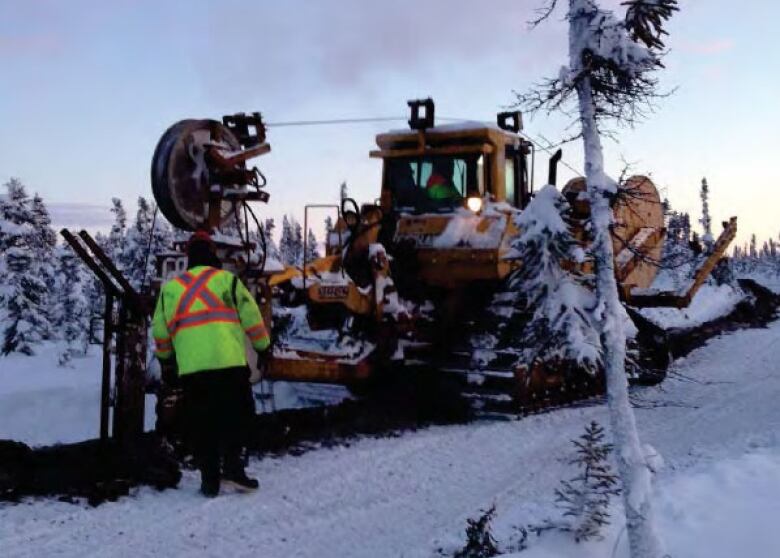CRTC ruling will improve internet in territories in time, say providers
'It's important... and we've been living in the past in those rural areas, and it's time to move forward.'

Notoriously slow internetin the North is set for a major overhaul following Wednesday's CRTC decision to make broadband internet an essential service for all Canadians.
Current internet speeds in Nunavut max out at 5 megabitsper second (Mbps) for downloading, and a 1 Mbps upload speed. The CRTC's new mandatory minimum speeds are 10 times those amounts, and a $750 million fund will be established to help pay for the infrastructure needed to get there.
Coming on the heels of a major federal funding announcement last week $500 million for projects that will increase rural and Northern connectivity means that "Christmas came early," said Rick Steele, an executive director ofTechYukon, a professional association of information technology companies in the territory.

Dean Proctor, the Chief Development Officer at SSi Micro, Nunavut's largest internet provider, agreed, saying that the decision is a game-changer.
The new pots of money will allow companies like SSi to tap major subsidies to enhance their internet "backbones" essentially the long-distance 'internet pipelines' (satellite, microwave or fibre-optic) that move data from rural areas to the continental internet grid.
"What is constraining the North is the backbone in and out of the communities. So this latest round of funding and yesterday's announcement by the CRTC will both go to increase the amount and the quality of capacity going into remote areas and going into all of Nunavut," said Proctor.
"It's going to allow for a lot more speed and capacity at an affordable rate, which is important to underscore, into all of the communities. It's closing the digital divide."
Upgrades will take time
However, that the change won't happen overnight, said Steele.
"We've got some ground to cover," he said. "We have older technology in the communities. In Dawson City, in Haines Junction, everyone is workingwith the old ESL modem technology. We're going to need some help and support in upgrading those systems."
Proctor agrees, saying that "there are large areas of the country that will not beseeing 50 down, 10 up [the minimum speeds mandated by the CRTC]in the next few years.

He also pointed out that the CRTC hasn't set maximum prices companies can charge their rural or Northern customers for the improved internet, and that"affordability, to be frank, will vary with region and will vary with time."
That said, "if it can be clearly demonstrated by an applicant for funding under the new program that a certain price point is just not affordable, we need more funding, the commission will be open to that," he added.
Technological leap
It might seem like an impossiblylarge technological leap to get from current speeds in the North to those now mandated by the CRTC within a decade and a half, but Proctor says the enabling technology is on its way.
"There are new satellites coming out called high throughput satellites, they deliver much more capacity for a much more efficient and cost-effective price point then in the past."
One is being launched in 2018, and SSi has already agreed to purchase space on the satellite.
"We certainly expect to see fibre [optic cables come to Nunavut] over the 10 to 15 years, because that's what the timeline is for these new objectives," he adds.
The decision could also mean big things for education in the territories, according to Jonathan Baynes, the executive director of IT at Whitehorse's Yukon College.
Baynes says that slow download speeds currently make it difficult to provide remote education for those living in rural communities, and that higher speeds will help bring expanded opportunities to those in far-flung communities such as Old Crow, Yukon.
"A lot of people want to access the training and courses from home, or from their workplace, and they are not able to do that," he said. "If this funding can help them to find a technological solution so that they can get that 50 megabit connection to that doorway? That is good news."
A spokesperson for Northwestel, the largest internet provider in the Northwest Territories and Yukon, declined to comment at this point, except to say that the company is "still studying the ruling."
with files from Mark Rendell, John Van Dusen, Sandi Coleman, Mike Rudyk












_(720p).jpg)


 OFFICIAL HD MUSIC VIDEO.jpg)
.jpg)



























































































